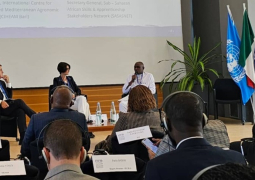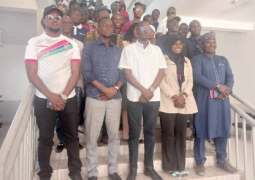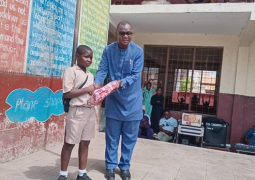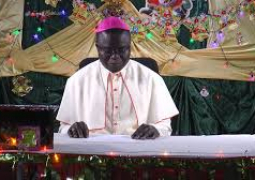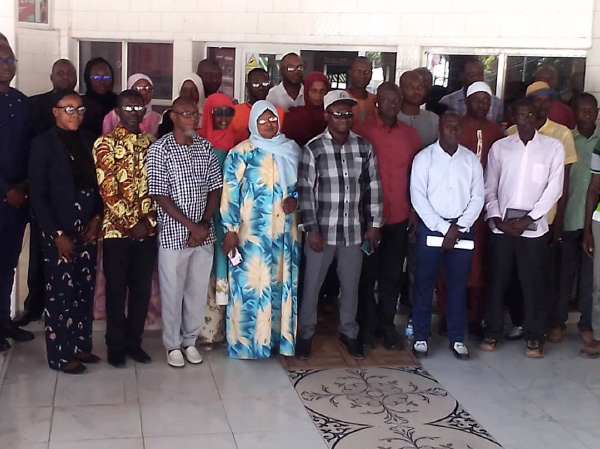
The training held at a local hotel at Yundum, attracted relevant stakeholders from National Farmer Platforms, CSOs and extension workers.
The training was aimed at building the capacity of participants on techniques and strategies for scaling-up climate smart agriculture and agro-ecologies.
CORAF- is an international non-profit organisation, working in 23 countries in West and Central Africa. The organisation has received funding from the European Commission’s Development of Intelligent Innovation through Research in Agriculture (DeSIRA) Initiative to stimulate the transformation of innovation in agricultural and food systems in West and Central Africa to be more resilient to climate change and better respond to development demands through the Comprehensive Africa Agriculture Development Programme Ex-Pillar IV Africa Regional and Sub-regional Organisations for Agricultural Research and Innovation (CAADP-XP4)
Representing the Minister for Agriculture (MOA), Dr. Saikou E. Sanyang, deputy permanent secretary, Corner Cills under the MOA, said to mitigate the impact of climate change on agriculture, farmers need to transform their agricultural food systems by changing processes, practices, and structures.
“One way of doing that, is to adopt climate smart agricultural practices such as use of improved seeds and high yielding varieties; drought tolerant varieties; salt tolerant varieties; conservation practices; high tolerant animal breeds and the use of organic manure,” he empasised.
He, thus, enjoined participants to take the training seriously, while urging resource persons to deliver well to ensure participants are equipped with the requisite knowledge and skills on Climate Smart Agriculture, (CSA) and Agroecology
Amadou Ngaido, CORAF representative, acknowledged that the training was geared toward promoting the adoption of CSA and agroecology practices as well as technologies in West and Central Africa.
He expressed optimism that at the end of the training, participants would master and revisit the basic theoretical and technical concepts of CSA and Agroecology; understand and master techniques, tools and specificities for scaling-up CSA and agroecology and master the methods and tools for evaluating agricultural CSA technologies and innovations.
Dr. Lamin Dibba, focal point of the CAADP-XP4 project in The Gambia, explained that the goal of the project is to contribute progressively to achieving the Sustainable Development Goal 2 and the action to combat climate change and its impacts (SDG 13) and also to enable agricultural research and innovation, including extension services to contribute effectively to food and nutrition security; economic development and climate mitigation in Africa.
These actions, he added, would be attained by improving capacity, effectiveness and positioning of the Regional and Sub Regional Agricultural research and extension organisation as well as National-Agriculture-Research Systems and by promoting collaboration and acknowledge sharing among organisations.
He thus urged participants to make best use of the training by sharing knowledge and experience on the subject matter. He further thanked EU for funding the project.
Representing the Director General of NARI, Dr. Demba N.A Trawally, deputy director general of NARI, disclosed that the triple threat of climate change, COVID-19 and conflict is revealing the inherent fragility of food systems worldwide along with their negative impacts on natural resources as well as their prominent role in worsening climate change and social inequities.
Read Other Articles In National News
